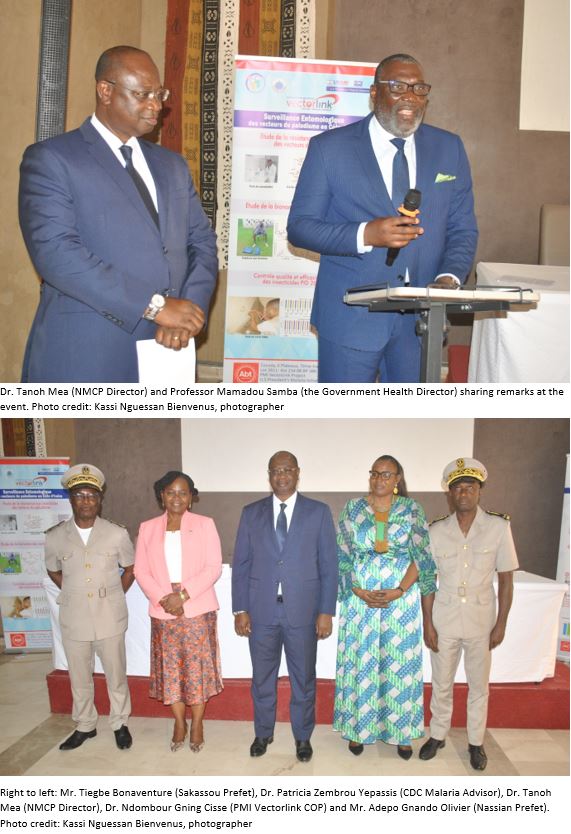 After five years of work under PMI VectorLink, VL Côte d’Ivoire celebrated the completion of its vector control intervention activities on January 19, 2023 at an event attended by PMI, the NMCP, and other government partners. The team conducted three IRS campaigns in 2020, 2021, and 2022, and worked with the NMCP to distribute nets during the 2021 mass ITN distribution campaign.
After five years of work under PMI VectorLink, VL Côte d’Ivoire celebrated the completion of its vector control intervention activities on January 19, 2023 at an event attended by PMI, the NMCP, and other government partners. The team conducted three IRS campaigns in 2020, 2021, and 2022, and worked with the NMCP to distribute nets during the 2021 mass ITN distribution campaign.
VL Côte d’Ivoire highlighted the accomplishments regarding vector control interventions that protected the Ivorian population. The project delivered IRS safely and to the highest quality for the first time at scale in the country; the team shared the first results of the neonicotinoid-based IRS products, which prevented 21,000 malaria cases in 2020 and 2021; and they distributed 3,074,527 PBO-ITNs in 11 districts protecting 5,479,980 people and 1,017,457 households.
The project’s entomological surveillance work will continue, and the team recognized the significant contributions in this space as well, including the rehabilitation of the insectary at the Institut National d’Hygiene Publique (National Institute of Public Health). In addition, VL Côte d’Ivoire supported the enhancement of entomological capabilities through rehabilitation of the Centre d’entomologie médicale et vétérinaire (Center for Medical And Veterinary Entomology) laboratory animal shelter and supported the Institut Pierre Richet (Pierre Richet Institute) with equipment (polymerase chain reaction machine) and supplies that will allow local research institutes to increase the breadth and quality of their vector control monitoring activities and better support the NMCP vector control unit to plan and monitor appropriate vector control interventions.
Among those present at the event were PMI representatives, Pascal Zinzindohoue, Patricia Zembrou Yepassis, and Blaise Kouadio; the Government Health Director, Professor Mamadou Samba; Director of the National Malaria Control Program (NMCP), Dr. Tanoh Mea Antoine; local administrative and health authorities from Sakassou and Nassian districts, and the vector control steering committee. In his speech, Dr. Tanoh highlighted the important contributions the team made to strengthening the NMCP and partner’s capacity in addition to their contributions in vector control.
Congratulations on your accomplishments, VL Côte d’Ivoire! They are well-deserved.


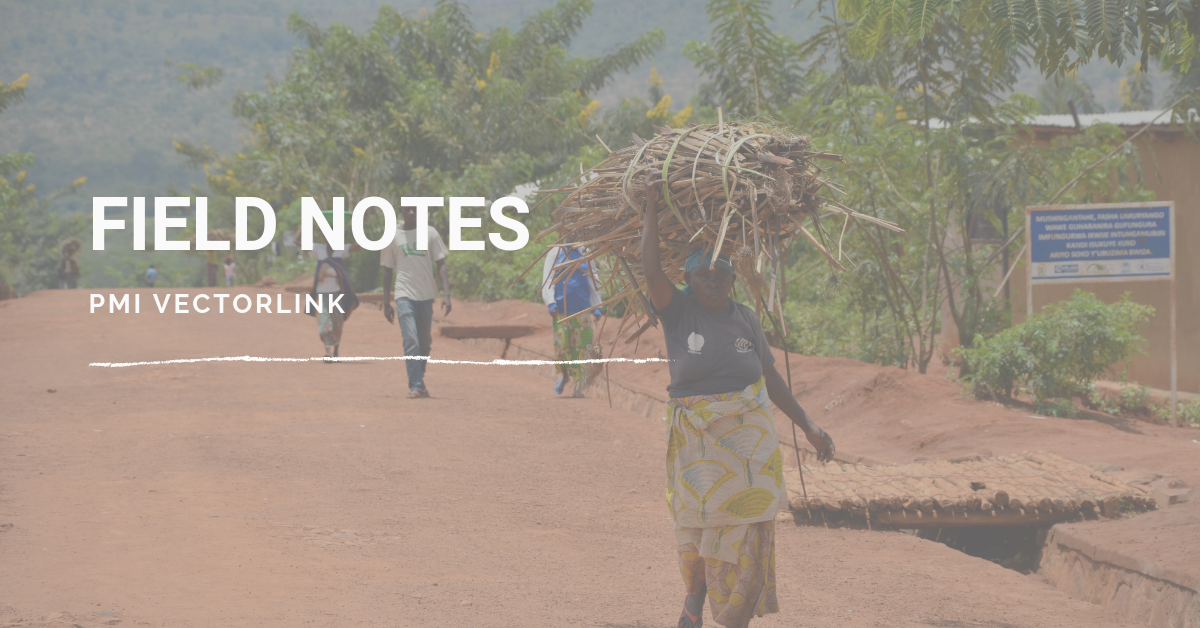
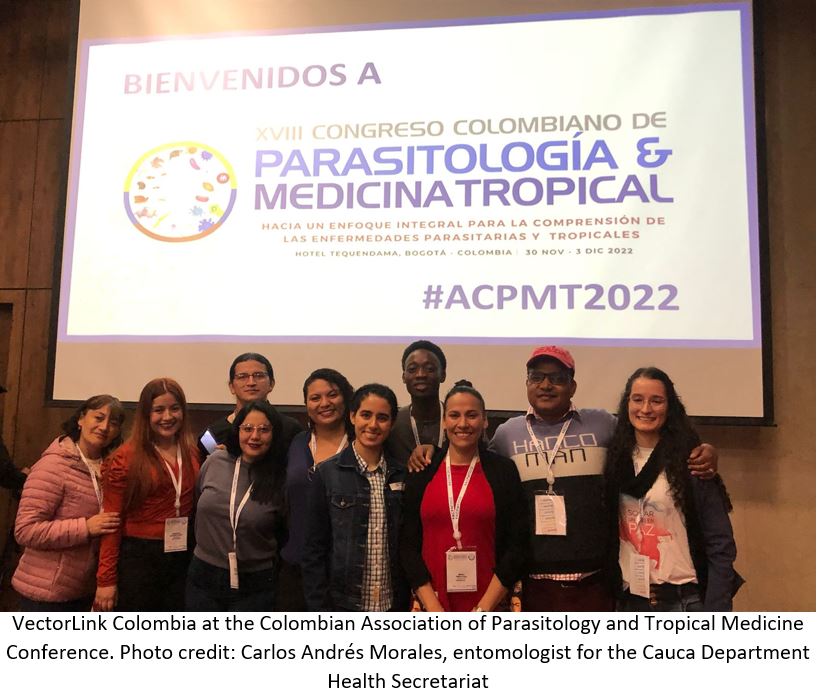 This week’s Fist Bump goes to the VectorLink Colombia team for their participation in the Colombian Association of Parasitology and Tropical Medicine Conference (XVII Congreso de la Sociedad Colombiana de Parasitología y Medicina Tropical, ACPMT) in Bogotá towards the end of last year. They had seven abstracts accepted and Chief of Party Manuela Herrera-Varela participated in a symposium.
This week’s Fist Bump goes to the VectorLink Colombia team for their participation in the Colombian Association of Parasitology and Tropical Medicine Conference (XVII Congreso de la Sociedad Colombiana de Parasitología y Medicina Tropical, ACPMT) in Bogotá towards the end of last year. They had seven abstracts accepted and Chief of Party Manuela Herrera-Varela participated in a symposium.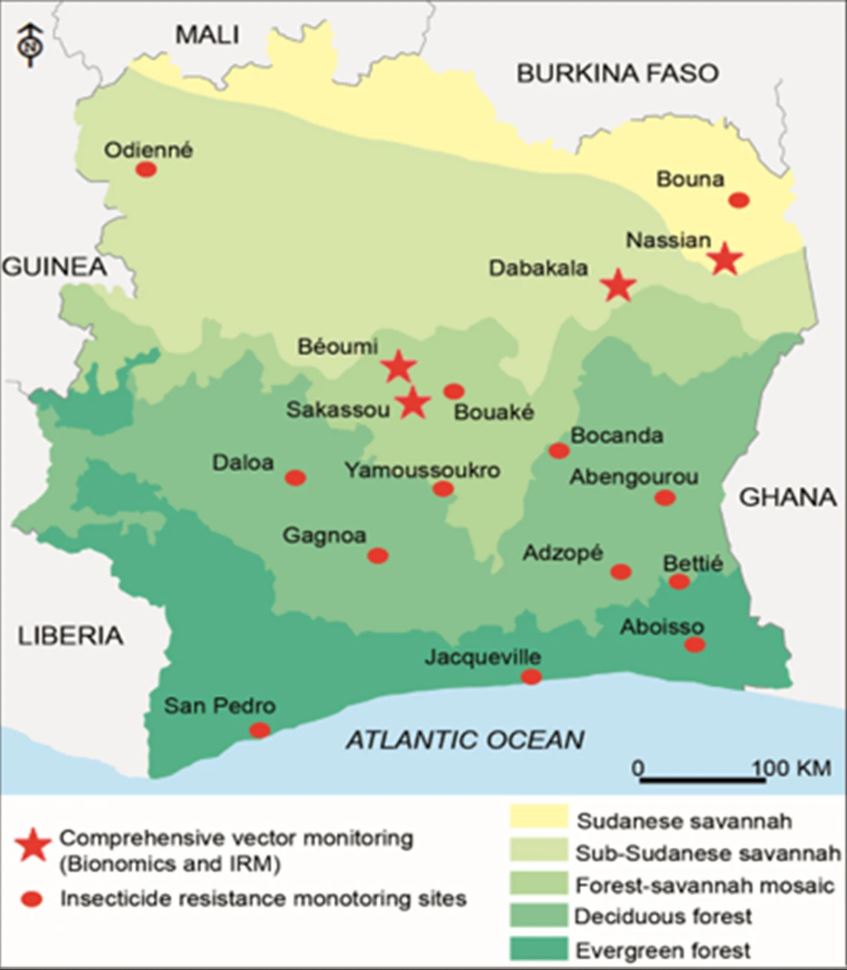
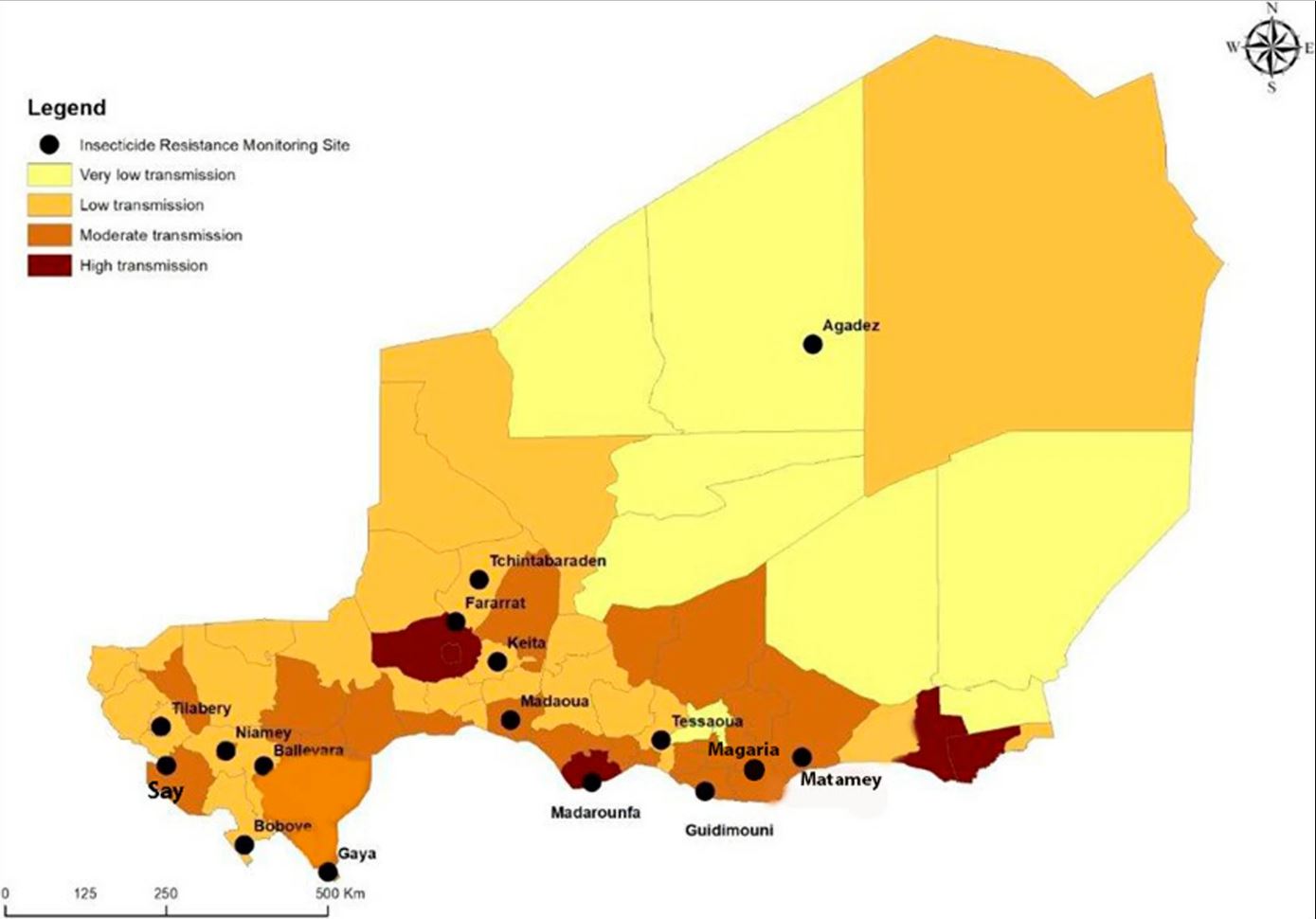
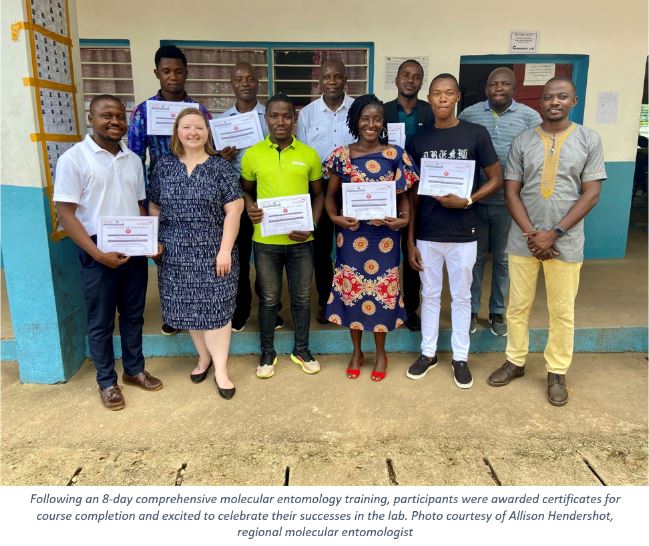 Malaria parasites were first observed in Anopheles gambiae and funestus mosquitoes by Sir Ronald Ross in 1899 at a research lab in Sierra Leone, determining them to be the principal malaria vectors in Africa—a contribution which laid critical groundwork to understanding malaria transmission and prevention. However, there has been limited local capacity to continue this malaria research. This week’s Fist Bump goes to the VectorLink Sierra Leone team for helping to establish molecular entomology capacity in country through new partnerships established with the Ministry of Health and Sanitation (MOHS) and Njala University. In 2021, after rigorous capacity assessments led by Dr. Kevin Opondo, Njala University was selected to support the National Malaria Control Program (NMCP) to analyze malaria-carrying mosquitoes collected by the PMI VectorLink Project.
Malaria parasites were first observed in Anopheles gambiae and funestus mosquitoes by Sir Ronald Ross in 1899 at a research lab in Sierra Leone, determining them to be the principal malaria vectors in Africa—a contribution which laid critical groundwork to understanding malaria transmission and prevention. However, there has been limited local capacity to continue this malaria research. This week’s Fist Bump goes to the VectorLink Sierra Leone team for helping to establish molecular entomology capacity in country through new partnerships established with the Ministry of Health and Sanitation (MOHS) and Njala University. In 2021, after rigorous capacity assessments led by Dr. Kevin Opondo, Njala University was selected to support the National Malaria Control Program (NMCP) to analyze malaria-carrying mosquitoes collected by the PMI VectorLink Project.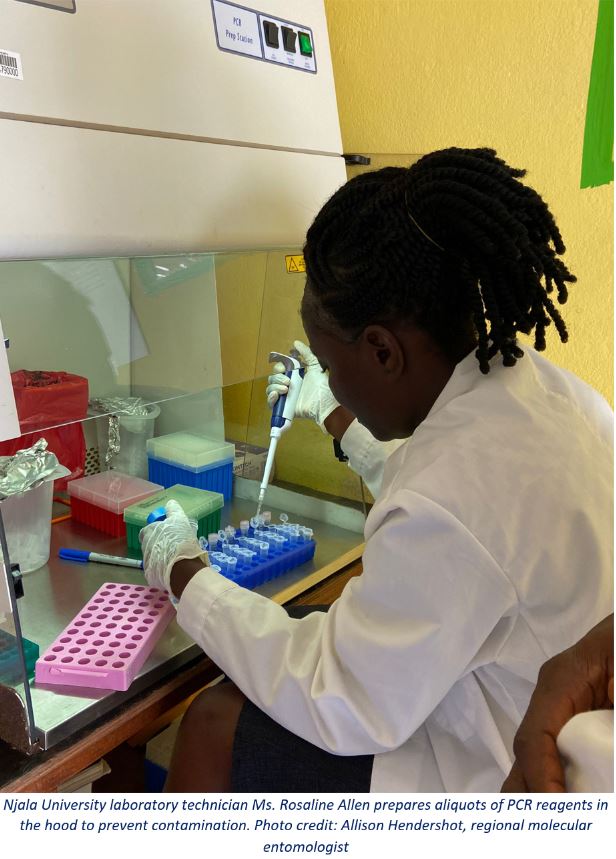
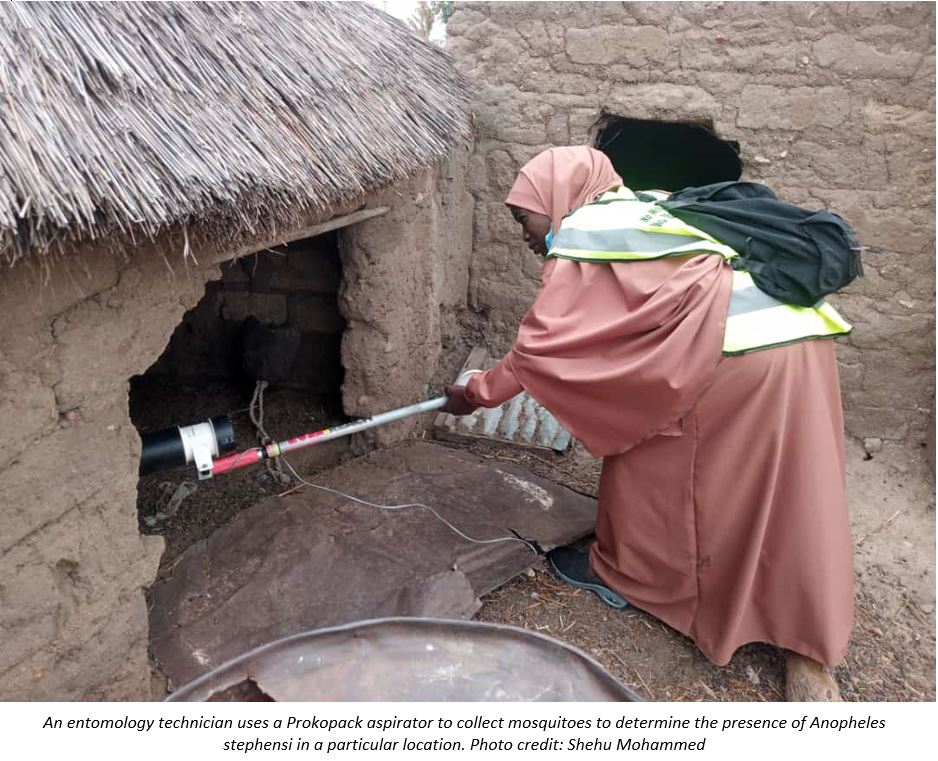 Happy New Year, everyone! We’re excited to resume sharing the vital work that our colleagues are doing, with this first Fist Bump of 2023!
Happy New Year, everyone! We’re excited to resume sharing the vital work that our colleagues are doing, with this first Fist Bump of 2023!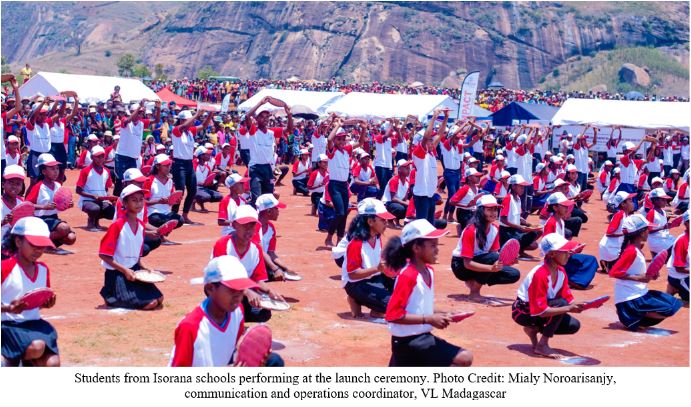 This week’s Fist Bump goes to VectorLink Madagascar, who had a very cross-cutting IRS launch ceremony in Isorana commune, Isandra district in November 2022. This was the first year VL Madagascar sprayed in Isandra, and more than 2,000 people attended the event.
This week’s Fist Bump goes to VectorLink Madagascar, who had a very cross-cutting IRS launch ceremony in Isorana commune, Isandra district in November 2022. This was the first year VL Madagascar sprayed in Isandra, and more than 2,000 people attended the event.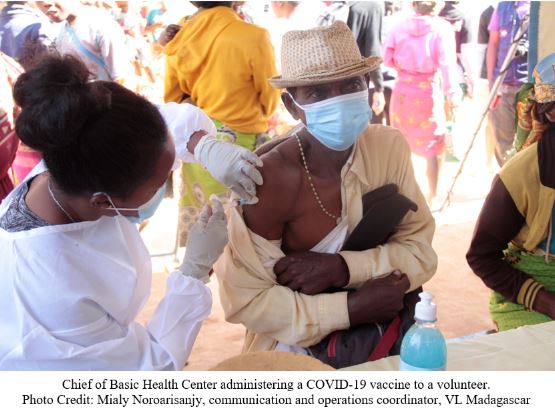 VL Madagascar worked with local authorities and partners at different levels; PMI/USAID partners, including ACCESS (supported COVID-19 vaccinations), IMPACT (HIV tests), FISA and MSI (family planning services), and Akbaraly Foundation (Cervical and Breast Cancer screenings) supported different health-related activities, and staff from the Centre Hospitalier Universitaire tested people for HIV and screened for cataracts and diabetes.
VL Madagascar worked with local authorities and partners at different levels; PMI/USAID partners, including ACCESS (supported COVID-19 vaccinations), IMPACT (HIV tests), FISA and MSI (family planning services), and Akbaraly Foundation (Cervical and Breast Cancer screenings) supported different health-related activities, and staff from the Centre Hospitalier Universitaire tested people for HIV and screened for cataracts and diabetes.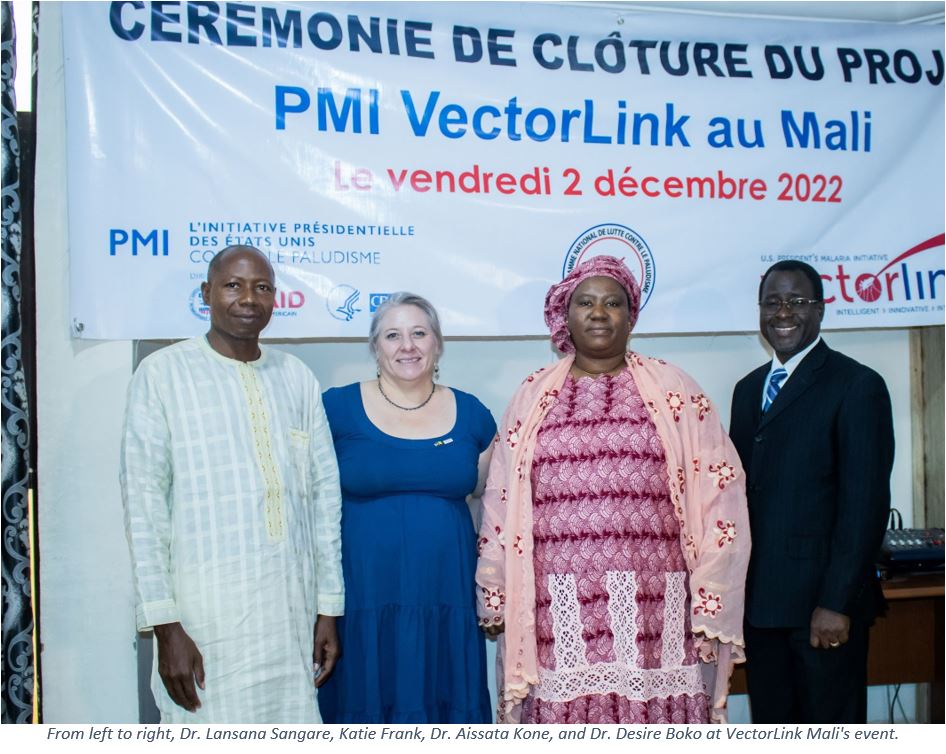 On Friday, December 2, the PMI VectorLink Mali team, along with PMI and USAID colleagues, hosted an event to mark the completion of the project’s five years of vector control interventions, including five IRS campaigns since 2018. Among those present at the event were Katie Frank, USAID Mali’s health office deputy director; Dr. Lansana Sangare, project management specialist for PMI-USAID Mali; and Dr. Aissata Kone, director of the National Malaria Control Program (NMCP), along with team members from across VectorLink Mali. In a
On Friday, December 2, the PMI VectorLink Mali team, along with PMI and USAID colleagues, hosted an event to mark the completion of the project’s five years of vector control interventions, including five IRS campaigns since 2018. Among those present at the event were Katie Frank, USAID Mali’s health office deputy director; Dr. Lansana Sangare, project management specialist for PMI-USAID Mali; and Dr. Aissata Kone, director of the National Malaria Control Program (NMCP), along with team members from across VectorLink Mali. In a 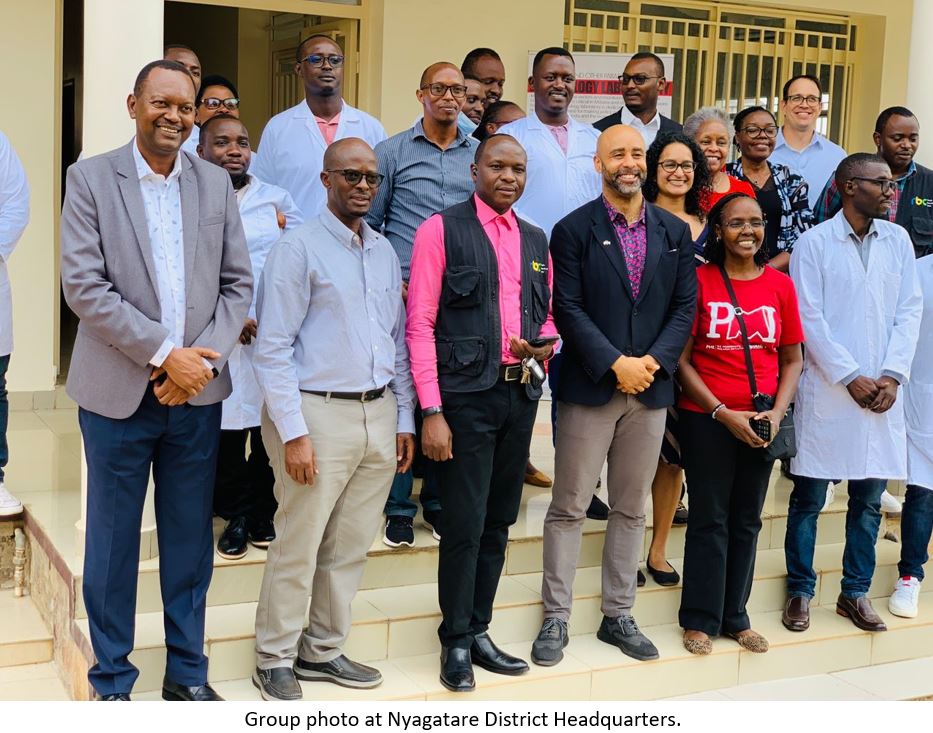 This week’s Fist Bump goes to VectorLink Rwanda who recently hosted the U.S. Global Malaria Coordinator Dr. David Walton in Nyagatare District, Eastern Province on his first visit to a PMI partner country as coordinator. Dr. Walton observed how spray operators for an IRS campaign are trained, visited the district hospital, and later toured the Malaria and Other Parasitic Diseases Division (MOPDD) entomology laboratory in Kicukiro District.
This week’s Fist Bump goes to VectorLink Rwanda who recently hosted the U.S. Global Malaria Coordinator Dr. David Walton in Nyagatare District, Eastern Province on his first visit to a PMI partner country as coordinator. Dr. Walton observed how spray operators for an IRS campaign are trained, visited the district hospital, and later toured the Malaria and Other Parasitic Diseases Division (MOPDD) entomology laboratory in Kicukiro District.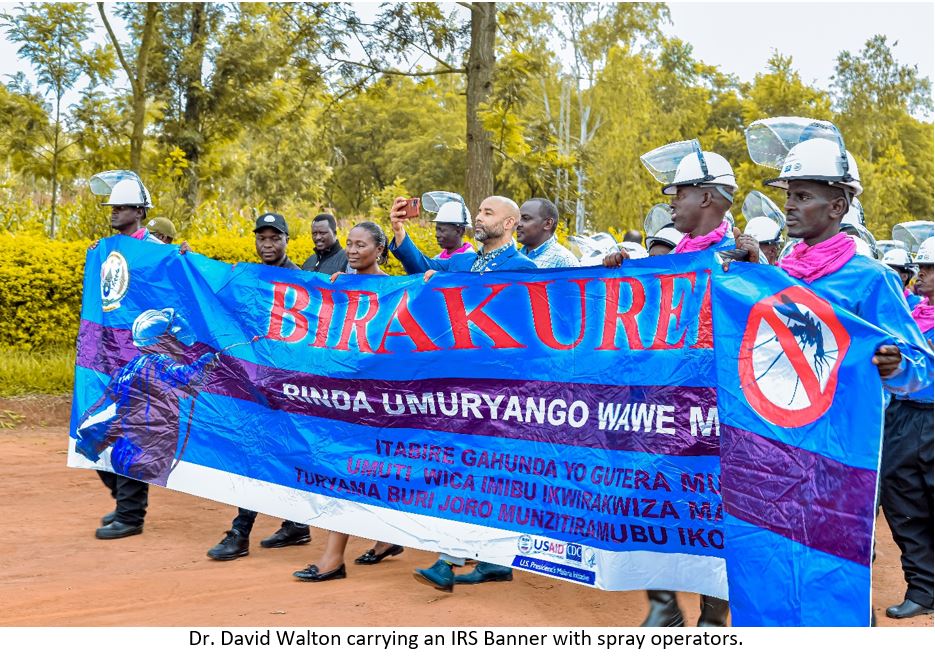
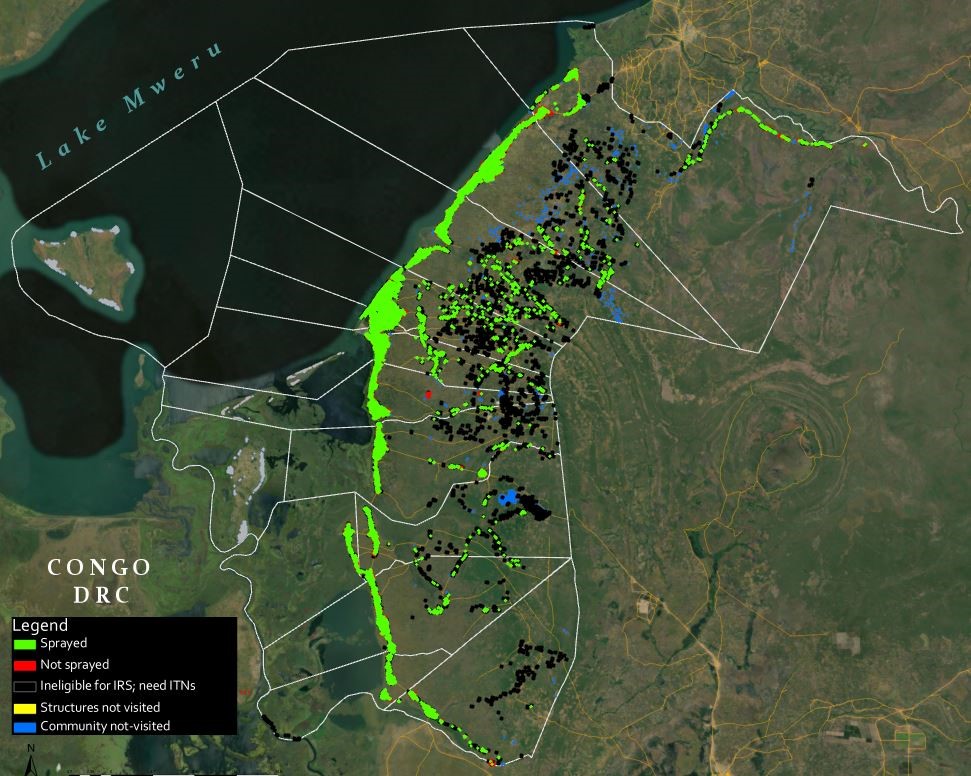
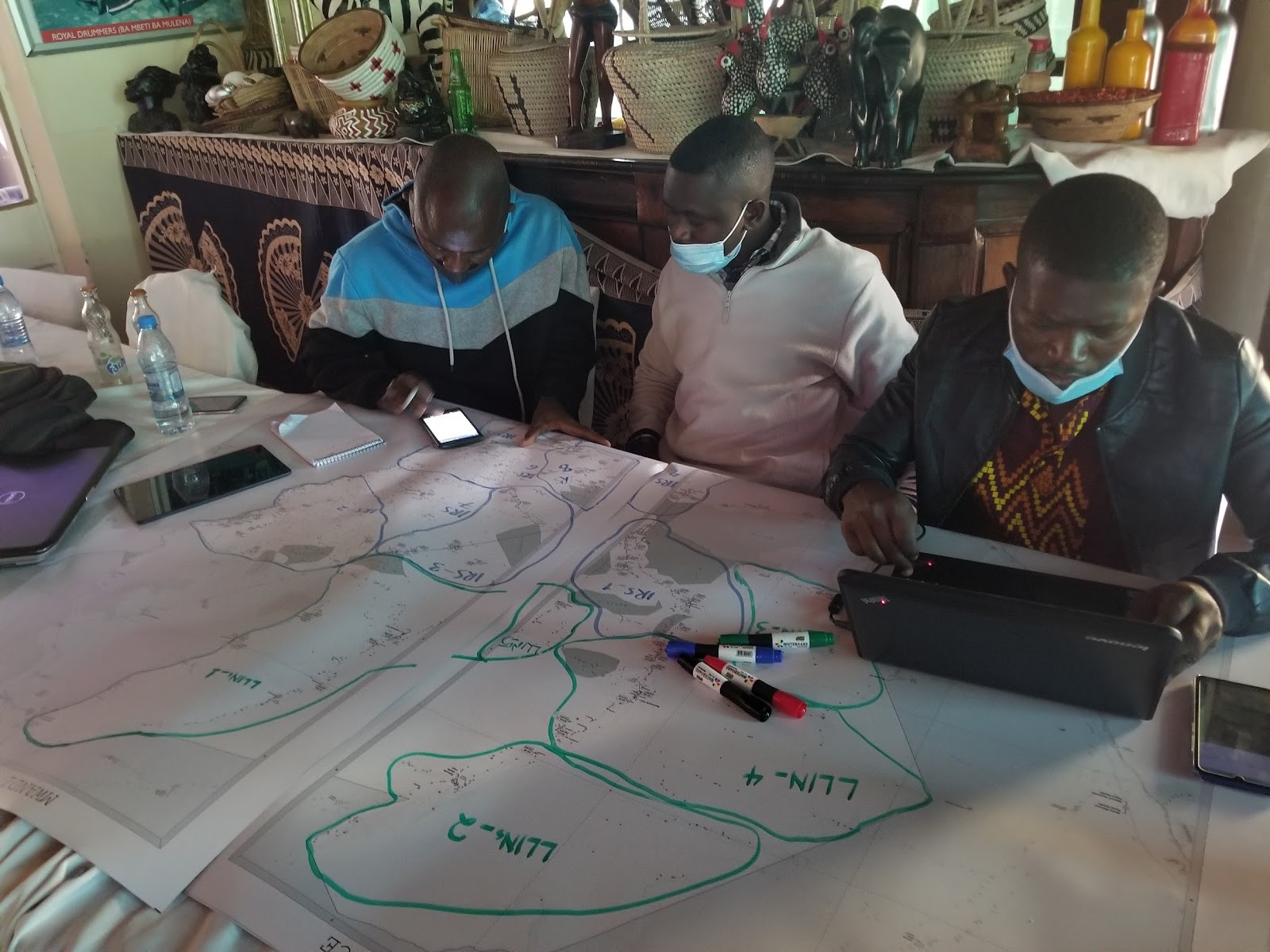
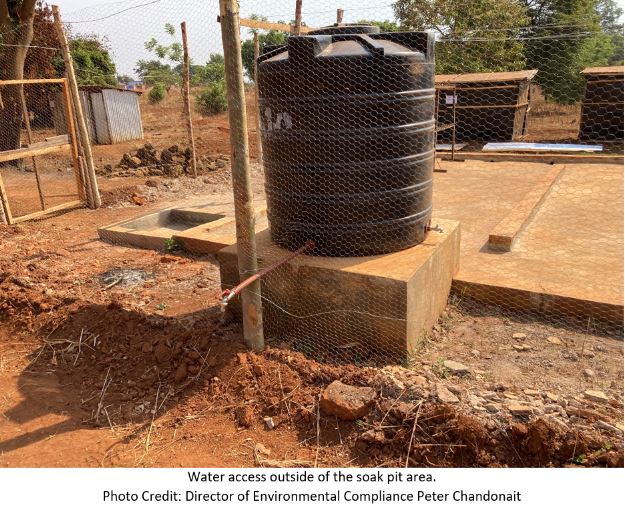 This week’s Fist Bump goes to the VectorLink Tanzania team for an IRS campaign that featured new innovations for the country and placed a significant emphasis on protecting vulnerable populations. The project worked closely with the National Malaria Control Program and Office of the President to successfully implement IRS in two districts in mainland Tanzania from October 5th – November 4th, 2022.
This week’s Fist Bump goes to the VectorLink Tanzania team for an IRS campaign that featured new innovations for the country and placed a significant emphasis on protecting vulnerable populations. The project worked closely with the National Malaria Control Program and Office of the President to successfully implement IRS in two districts in mainland Tanzania from October 5th – November 4th, 2022.